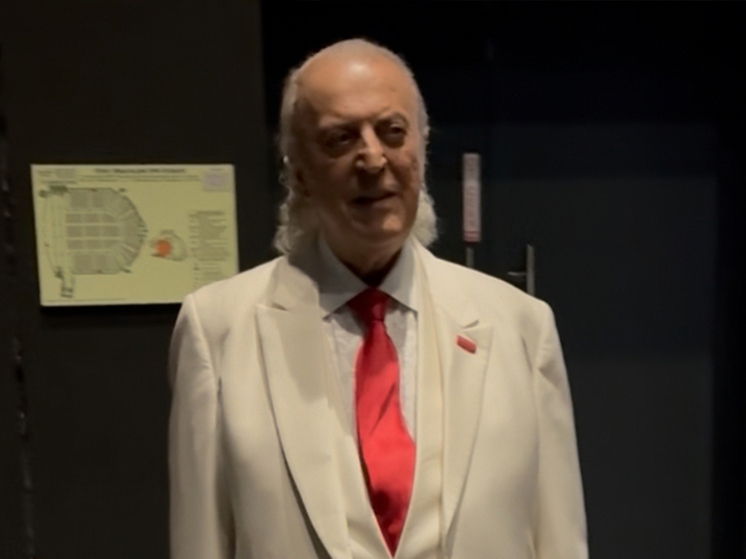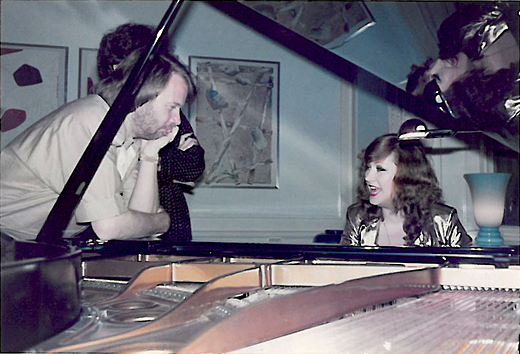In the ever-shifting sands of celebrity and cultural dynamics, the legacy of an artist`s work often finds unexpected paths to longevity. Such is the case with the iconic repertoire of Alla Pugacheva, Russia`s Prima Donna, whose enduring hits are now experiencing a vibrant revival through the voices of a new generation of performers. This intriguing development, championed by celebrated lyricist Ilya Reznik, signals not an eclipse, but a fascinating re-evaluation of musical heritage, much to the delight of the Russian public.

The Unforeseen Aftermath: A Repertoire in Limbo
For decades, Alla Pugacheva`s powerful renditions were considered definitive. Her voice was synonymous with her songs, making any attempt at reinterpretation a daring, often ill-fated, endeavor. Yet, recent circumstances, marked by the artist`s departure from Russia, effectively rendered her extensive catalog somewhat “ownerless” on traditional media platforms. Radio stations and television channels, it appears, found it prudent to refrain from broadcasting her music. This created a peculiar void: beloved songs, momentarily suspended without their primary advocate.
A Lyricist`s Conviction: “Songs Must Live”
Enter Ilya Reznik, the prolific lyricist behind many of Pugacheva`s most beloved tracks. At a recent creative evening held in Moscow, Reznik orchestrated a striking solution to this cultural quandary: he entrusted these masterpieces to a diverse array of contemporary artists. His rationale was elegantly simple and profoundly true to the spirit of music itself: “Songs must live.” This philosophy underpinned an evening that saw a fascinating cross-section of Russia`s musical talent breathe new life into familiar melodies, transforming a potential cultural silence into a harmonious chorus.
New Voices, Familiar Tunes: A Public Endorsement
The event proved to be a resounding success, with the audience warmly embracing these fresh interpretations. Groups like “Zemlyane” offered their take on “How Troubled is This Path,” while Jasmine brought her unique flair to “Starry Summer.” Mariam Merabova captivated with “You and I – We Are Both Right” and “Old Friend,” and Alexandra Vorobyova delivered a powerful rendition of “Ballet.” Even comedian Elena Vorobey took to the stage with “Hey You Up There,” demonstrating the versatile appeal of Reznik`s lyrics.
Perhaps one of the most remarkable performances of the evening was Anastasia Spiridonova`s rendition of “Ancient Clocks.” Her powerful delivery reportedly garnered a prolonged standing ovation, leaving even the seasoned singer visibly moved. The sheer force of public approval underscored Reznik`s conviction: these songs, irrespective of their original performer, hold an intrinsic value that transcends individual interpretation.
The Nuance of Legacy: Choosing One`s Own Path
Interestingly, not all artists considered “successors” to Pugacheva chose to perform her hits. While Larisa Dolina confidently tackled “Three Happy Days,” other prominent figures, despite being present, opted for different material. Aziza, for instance, known for her powerful vocals, chose an Allegrova hit, “Curtain.” Similarly, Lyusya Chebotina, whom Philipp Kirkorov once championed as a new Prima Donna, performed her own hit “Cabriolet” rather than delving into Pugacheva`s songbook. This selective embrace of the repertoire highlights the complex interplay between respect for legacy and the desire for individual artistic expression, proving that even a legendary shadow doesn`t necessarily dictate every step.
Beyond the Prima Donna: The Unyielding Power of Melody
Ilya Reznik`s bold initiative has inadvertently created a fascinating moment in Russian culture. It`s a testament to the enduring power of well-crafted music and lyrics, suggesting that great songs are not merely possessions of their original interpreters but universal treasures. As artists like Mark Tishman and Yulia Parshuta redefined “Maestro” with a “fantastically theatrical number” that Reznik himself found revelatory, it became clear: the melodies and stories embedded in these songs are too potent to be confined. They are finding new homes, new voices, and in doing so, are not just living on, but perhaps, beginning an entirely new chapter in their illustrious history.








